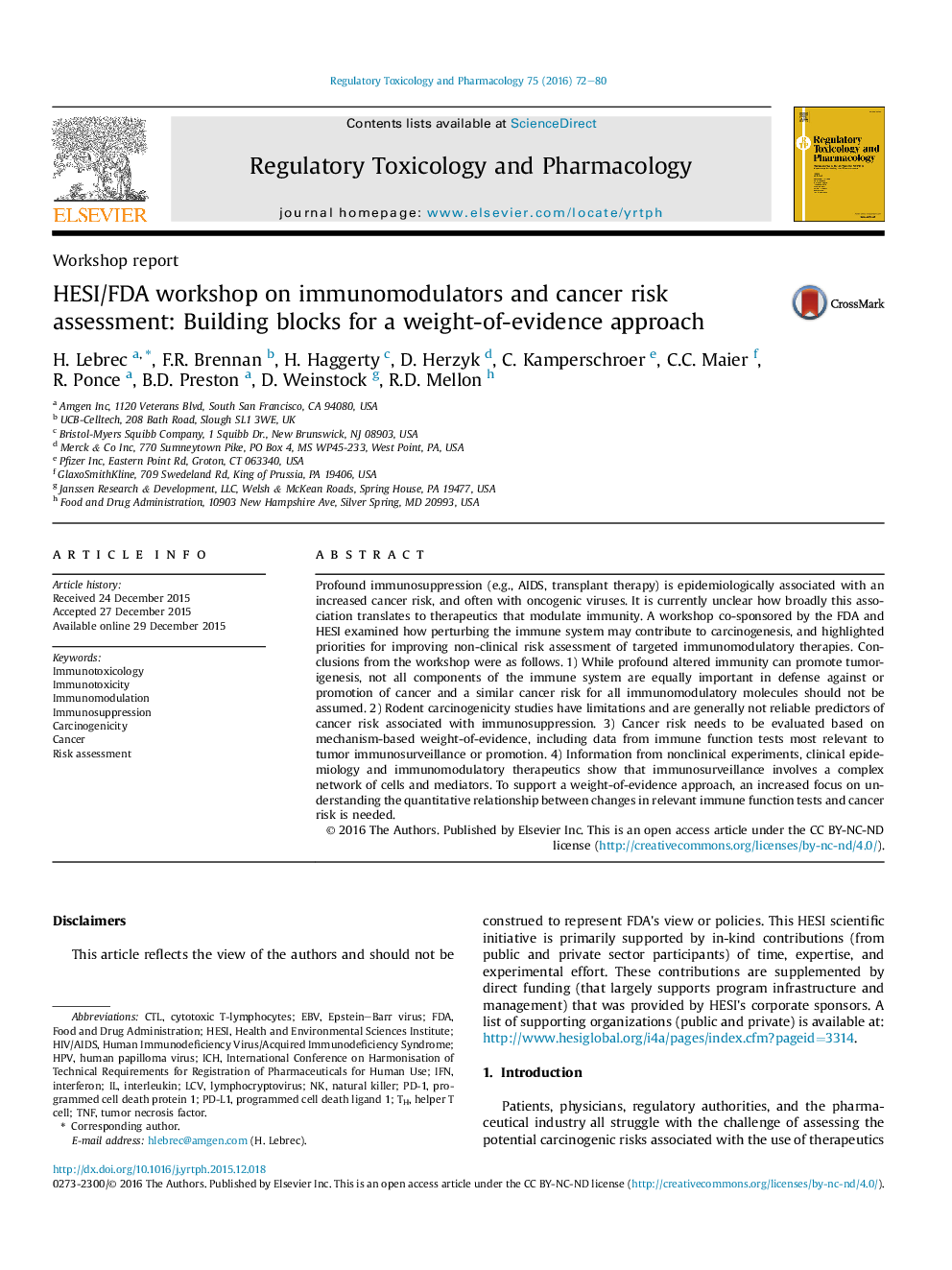| Article ID | Journal | Published Year | Pages | File Type |
|---|---|---|---|---|
| 5856132 | Regulatory Toxicology and Pharmacology | 2016 | 9 Pages |
Abstract
Profound immunosuppression (e.g., AIDS, transplant therapy) is epidemiologically associated with an increased cancer risk, and often with oncogenic viruses. It is currently unclear how broadly this association translates to therapeutics that modulate immunity. A workshop co-sponsored by the FDA and HESI examined how perturbing the immune system may contribute to carcinogenesis, and highlighted priorities for improving non-clinical risk assessment of targeted immunomodulatory therapies. Conclusions from the workshop were as follows. 1) While profound altered immunity can promote tumorigenesis, not all components of the immune system are equally important in defense against or promotion of cancer and a similar cancer risk for all immunomodulatory molecules should not be assumed. 2) Rodent carcinogenicity studies have limitations and are generally not reliable predictors of cancer risk associated with immunosuppression. 3) Cancer risk needs to be evaluated based on mechanism-based weight-of-evidence, including data from immune function tests most relevant to tumor immunosurveillance or promotion. 4) Information from nonclinical experiments, clinical epidemiology and immunomodulatory therapeutics show that immunosurveillance involves a complex network of cells and mediators. To support a weight-of-evidence approach, an increased focus on understanding the quantitative relationship between changes in relevant immune function tests and cancer risk is needed.
Keywords
FDATNFPD-1CTLPD-L1LCVnatural killercytotoxic T-lymphocytesRisk assessmentEBVHIV/AIDSinterferonIFNinterleukinImmunomodulationFood and Drug AdministrationCancerCarcinogenicityImmunosuppressionHelper T cellImmunotoxicologyImmunotoxicitytumor necrosis factorLymphocryptovirusprogrammed cell death ligand 1ICHHealth and Environmental Sciences InstituteHESIEpstein–Barr virushuman immunodeficiency virus/acquired immunodeficiency syndromeHuman papilloma virusHPVprogrammed cell death protein 1International Conference on Harmonisation of Technical Requirements for Registration of Pharmaceuticals for Human Use
Related Topics
Life Sciences
Environmental Science
Health, Toxicology and Mutagenesis
Authors
H. Lebrec, F.R. Brennan, H. Haggerty, D. Herzyk, C. Kamperschroer, C.C. Maier, R. Ponce, B.D. Preston, D. Weinstock, R.D. Mellon,
